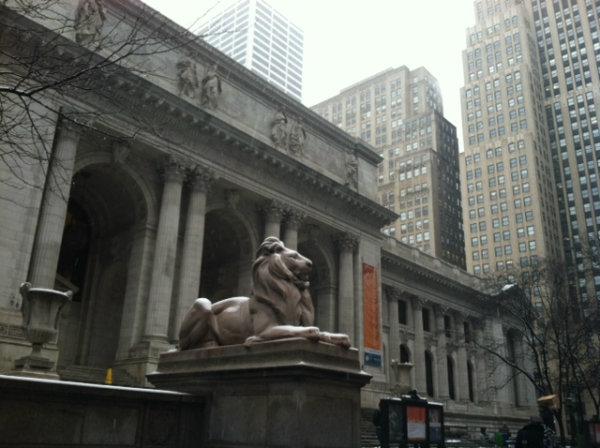New Digital Public Library of America seeks to increase accessibility to treasured works
The New York Public Library has one of the largest collections in the United States. A new digital library is trying to build a large collection of its own. (Photo by Annmarie Fertoli.)
Imagine the world’s largest collection of media — books, magazines, works of art — all accessible to you at the click of a mouse.
Not Google Books — a project that had to navigate copyright law, and in the process became a commercial library. Instead, the Digital Public Library of America went online this week. Its mission is to make all the collections of all libraries accessible to everyone, everywhere.
You only need an internet connection.
The Digital Public Library of America’s Director for Content Emily Gore said the collection will start with content that’s in the public domain, typically because its copyright has expired, as well as content that’s held by libraries, archives and museums that also have the rights to put the content online.
“That can include content like manuscripts, artworks, photographs, streaming video, stream audio — the Digital Public Library of America is not just about books,” Gore said.
Of course, there are many public domain books included, but the goal was to build out a broader collection.
“The goal here is not to have all these pockets be siloed,” Gore said. “The goal is to use the technology we do have, including better bandwidth, to pull things together in one discoverable place, so that small historical societies and other small institutions that contribute to these aggregation points … can then be shared at a larger scale.”
The hope is these small organizations’ content will become available to the world, really.
It’s a balance between finding titles that everyone should have access to, as well as to promoting access to specialized materials that otherwise might be virtually invisible. For example, the library already has daguerreotypes from George Washington and Abraham Lincoln, as well as the video footage of the Freedom Writers — all contributed and available for browsing.
So far, the Digitial Public Library of America is working with six pilot states to collect materials.
“We’re getting data that otherwise people would not be able to find,” she said, “because it’s fairly obscure, siloed content.”
